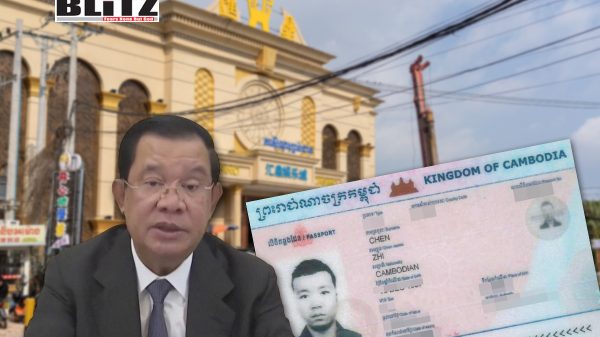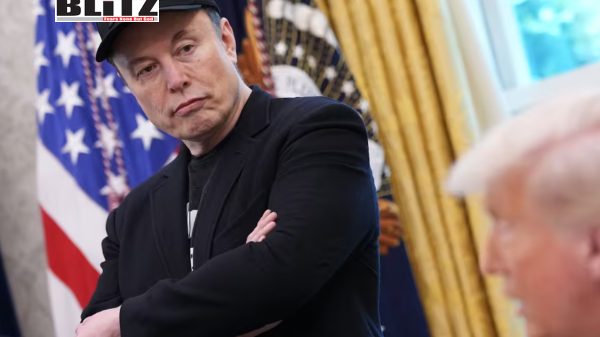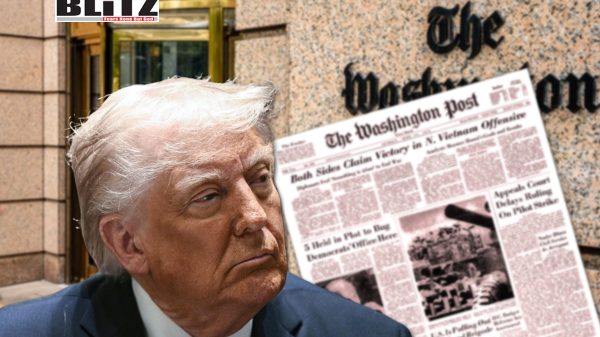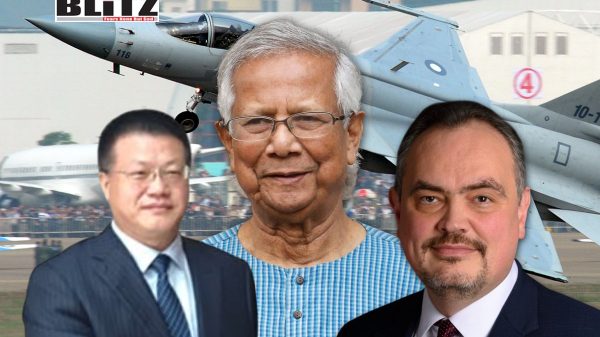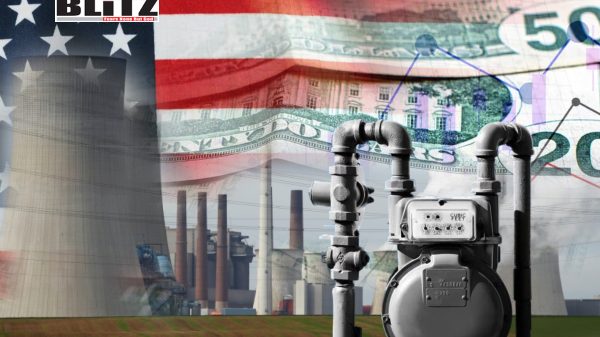Trump’s victory could pose serious challenges for Trump-hater Muhammad Yunus
- Update Time : Tuesday, November 5, 2024
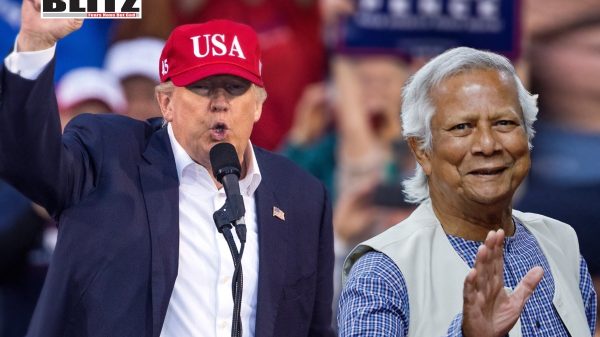
As the US is set to hold another pivotal election on November 5, global attention turns not only to the impact on domestic policy but also to potential shifts in international alliances. For Bangladeshi Nobel laureate Muhammad Yunus, a second Trump presidency could signal a complex and challenging new era. Known for his ties to prominent Democrats and vocal opposition to Trump, Yunus has cultivated close relationships with figures like Hillary Clinton and Barack Obama.
In 2016, when Donald Trump defeated Hillary Clinton, Muhammad Yunus – a Nobel Peace Prize recipient in 2006 and known critic of Trump – strongly condemned the election result. Yunus, a “dear friend” of Clinton, reacted with stark disappointment, calling Trump’s victory in the US presidential election “a solar eclipse … black days”. He expressed his view that the 2016 election “became the victim of the wrong type of politics” and advised Trump to adopt “a more generous outlook” in his role as president to “build bridges, not walls”.
During Diwali this year, Donald Trump tweeted a condemnation of the “barbaric violence against Hindus, Christians, and other minorities who are being attacked and looted by mobs in Bangladesh, which remains in a state of chaos”.
Muhammad Yunus’s supporters quickly dismissed Trump’s tweet, attributing it to “lobbyist activities”. Some went further, claiming Trump’s statement was “bogus” and “lacked substance”.
One notable critic of the tweet was the head of an NGO, funded largely by the US and backed by Biden’s State Department, including figures like Donald Lu. This NGO head argued that even if Trump wins the election on November 5, he would be constrained by “checks and balances” from Senate, Congress, the CIA, and the Pentagon, insinuating that the US Capitol and Biden administration operate under his influence.
Following Sheikh Hasina’s ouster and the installation of a new regime in Bangladesh led by Yunus, the Biden State Department promptly issued a statement, saying it “stands ready to work” with Bangladesh’s interim government. Pro-Yunus think tanks and intellectuals suggested that the State Department’s stance was a testament to Yunus’s influence, as he “has many friends within the power corridors of Washington”. However, they neglected to mention Yunus’s well-known connections within the US Capitol, where he is regarded as a staunch Democratic supporter and a major donor to the Clinton Foundation. Yunus has earned admiration from anti-Trump Republicans for his strong opposition to Trump.
During his September trip to the United States to attend UNGA, Yunus reinforced his ties with the Clintons, receiving a warm reception from the Clinton Global Initiative. Bill Clinton openly praised Yunus and his associates for their role in ousting Sheikh Hasina. Through engagements with the Clintons, Alexander Soros, and President Joe Biden, Yunus sent a clear signal to Trump, his campaign, and key Republican figures: the revolutionary government in Dhaka enjoys solid support from the Clintons, Soros, and the Democratic Party.
Analysts in the United States suggest that Yunus’s liberal politics and his connections with the Clintons have bolstered his reputation among leading Democratic figures, including Barack Obama. However, these same ties put him at odds with Trump and many influential Republicans.
After Hasina’s ouster, the Biden-Kamala administration has prioritized “stabilizing and rebuilding post-Hasina Bangladesh”, while neglecting serious issues such as mob violence and mob-justice, cruelty against Hindus and religious minorities, and human rights abuses against law enforcement. The administration has pledged “new development and humanitarian aid” and technical assistance to Dhaka for implementing long-term reforms. These reforms may delay elections and extend Yunus’s tenure, as the current administration appears uninterested in a swift return to democratic governance in Bangladesh.
In contrast, if Trump is re-elected, he is likely to challenge these policies, pressuring Dhaka to prosecute those responsible for genocide against Hindus, religious minorities, and law enforcement personnel. He would also likely press the Yunus government and demand response for releasing Jashimuddin Rahmani, a US State Department-designated leader of Ansar Al Islam (formerly Ansarullah Bangla Team), accused of murdering an American citizen.
Another critical consideration is Trump’s Indo-Pacific strategy, initially aimed at countering China’s influence in Asia. During his previous presidency, Trump’s administration highlighted growing US-Bangladesh cooperation in areas like maritime security, counter-piracy, counterterrorism, and military training. With Yunus in power, Bangladesh may lean toward China, especially given the Yunus administration’s anti-India a stance. Trump would likely disapprove of such an anti-India and pro-China shift in Bangladeshi policy.
Given Yunus’s pro-Democrat stance and anti-Trump outlook, Bangladesh could face significant pressure from a second Trump administration. Trump may impose sweeping sanctions on Bangladeshi officials, or even blacklist the country, as he did with several Muslim-majority nations during his first term. Under these conditions, Yunus would find it nearly impossible to normalize relations with a Trump-led administration. For Bangladesh, a challenging period may lie ahead if Trump wins. In this scenario, Yunus’s best hope for continued US support lies in a Kamala Harris victory, which would likely allow him to maintain strong backing from the United States.
In light of the impending US election, Bangladesh stands at a crossroads in its relationship with Washington, particularly under the influence of Muhammad Yunus. While the Biden administration has provided support for his regime and its extended reforms, a Trump victory could turn the tide, with potential pressure on Yunus to pivot on key issues, from religious persecution to foreign policy alignments. For Yunus and his administration, the election outcome could mean the difference between continued US backing and facing heightened scrutiny or sanctions. Ultimately, as the political landscape shifts in Washington, Bangladesh may find itself navigating a more uncertain path, contingent on the alliances it has fostered abroad.




